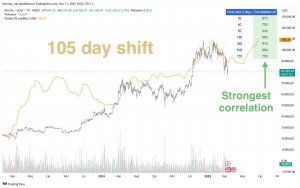Gig Workers Poised to Capitalize on Pandemic After Shocks

This article is a part of a series based on our Annual Strategic Report, The Future Is Gig. Download the report here.
Supply Chain Woes
The disruption in global supply chains, elevated shipping costs, and ongoing logistic disruptions have prompted initiatives to diversify suppliers and simplify shipping requirements.

This has led to a trend toward ‘reshoring’ and ‘nearshoring’, with some of the world’s largest tech manufacturers shifting a significant share of their production to different countries. As a result, the strain on global supply chains has created a persistent issue, affecting several sectors and prompting a need for more flexible and agile workforce arrangements.
In response to these challenges, many workers have turned to independent gig work, seeking more control over their work arrangements and embracing the flexibility offered by such roles.
The pandemic has accelerated existing trends in remote work and automation, leading to a broader reshaping of work arrangements and a growing emphasis on alternative forms of employment, including gig work.
Inflation Nation
The inflation surge of 2021-23, influenced by factors such as rising oil prices, loose monetary policy, and supply chain disruptions, has significantly impacted work dynamics.

As the labor market tightened during this period, core inflation rose as the ratio of job vacancies to unemployment increased, leading to wage pressures that passed through to the prices for goods and services.
The strain on global supply chains and elevated shipping costs prompted a trend toward reshoring and nearshoring, driving workers to seek more flexible and agile workforce arrangements, including independent gig work.
Additionally, the inflationary environment has led to a reevaluation of traditional employment benefits and stability, prompting workers to pursue independent gig work as a way to gain more control over their earnings and work schedules.
These dynamics have underscored the broader shift towards independent work in response to economic challenges and changing work dynamics, as individuals seek more immediate and flexible income-earning potential in the face of inflationary pressures.





